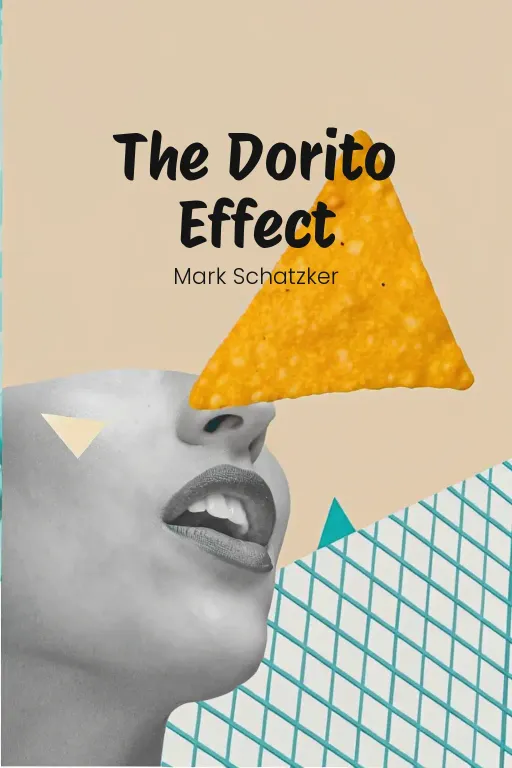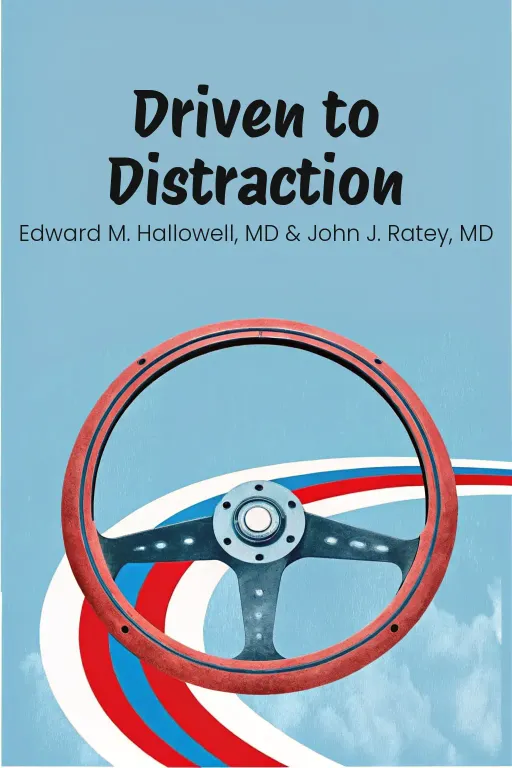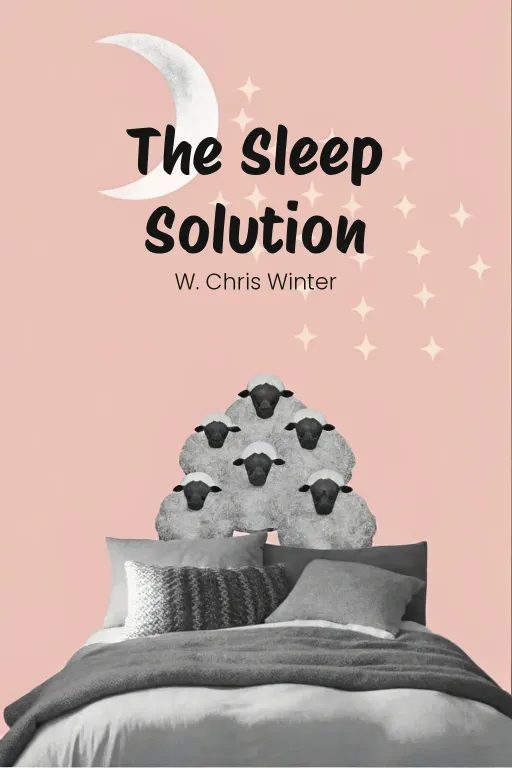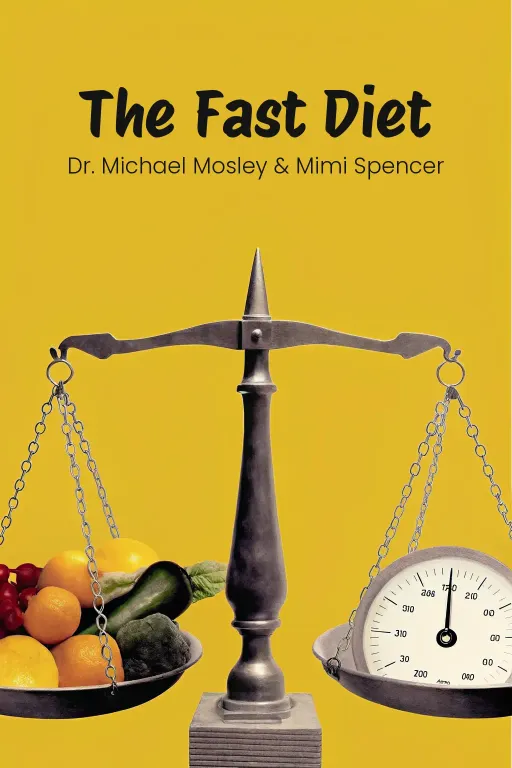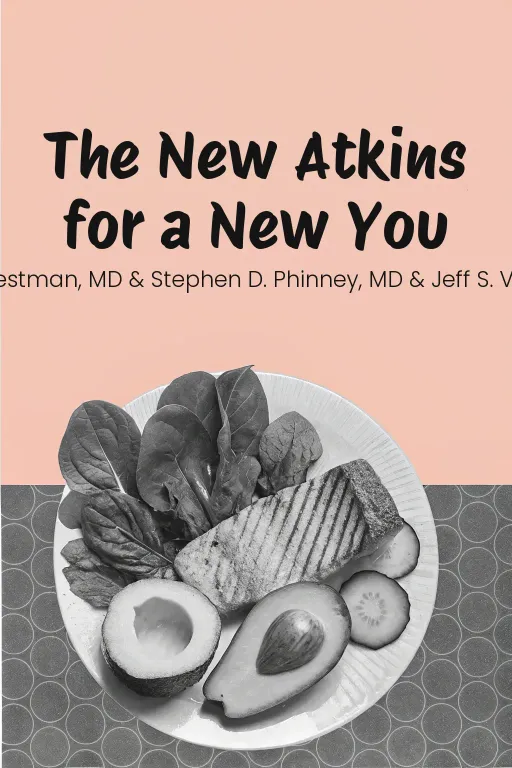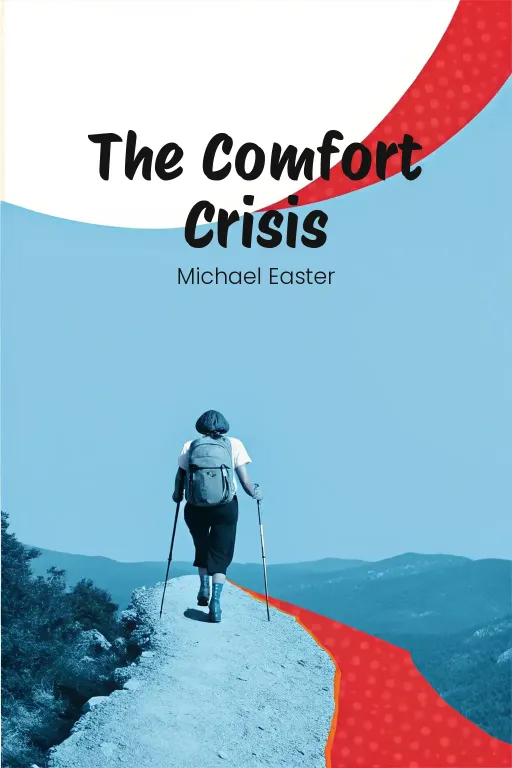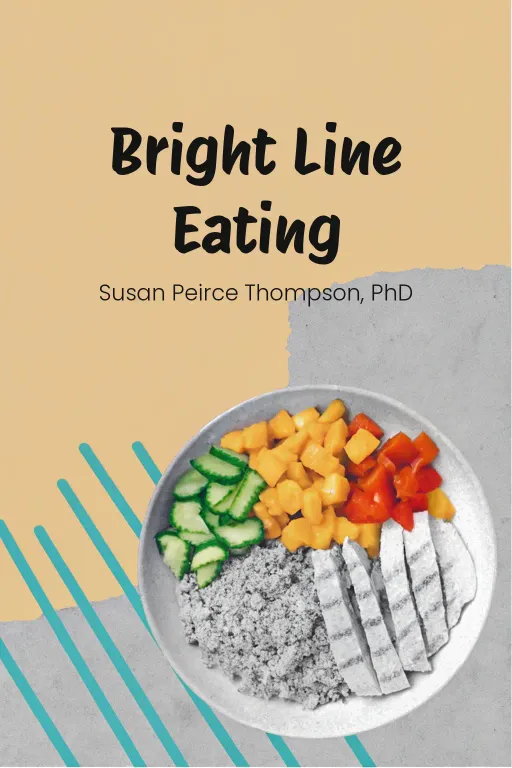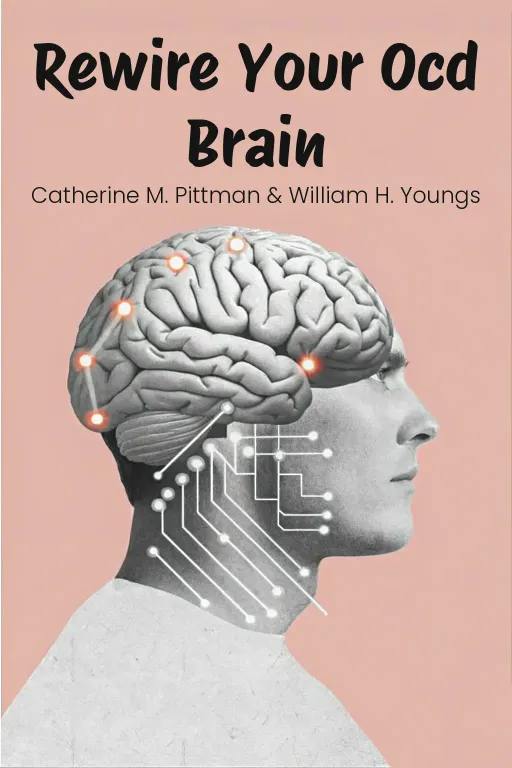
Own Your Power: Decode Your Moods
Podcast by Beta You with Alex and Michelle
The Truth About the Drugs You’re Taking, the Sleep You’re Missing, the Sex You’re Not Having, and What’s Really Making You Crazy
Own Your Power: Decode Your Moods
Part 1
Alex: Michelle, have you ever been described as “moody”? Michelle: Only before my morning coffee kicks in. But honestly, who isn't a little off before their caffeine fix? Alex: True! But what if we turned that idea on its head? What if being “moody” wasn't a bad thing, but actually a strength? Maybe even a built-in advantage? Michelle: Uh-oh, here comes the plot twist. Are we saying emotional sensitivity is a good thing? Alex: Exactly! There's this book, Moody Bitches by Julie Holland, that argues women's emotional ups and downs, linked to their hormones, aren't weaknesses at all. They're actually crucial for handling relationships, figuring things out, and even staying alive. Michelle: Wait, so the mood swings we've been told are a problem are actually...useful? Another myth bites the dust! Alex: That's the idea. Holland looks at everything from hormones to how drug companies and society have mislabeled these natural changes as illnesses. And the best part? She encourages women to embrace their emotions, use mindfulness, get to know themselves better, and focus on overall well-being, like with good food and sleep. Michelle: Alright, so we're diving into three main topics today, right? Alex: Yep! First, we'll discuss why women's emotions are an asset, not a liability. Then, we'll break down how hormones influence our emotional states. And finally, we'll see how things like mindfulness and good health habits can make a real difference. Michelle: Sounds like we're going from science to self-help, with a little mindfulness on the side. Let's jump in!
Understanding Women's Emotional Complexity
Part 2
Alex: Okay, so let's get into this really important point that Holland raises, which is how society constantly tells women their emotions are a problem. I mean, from a young age, women are kind of taught that being emotional is a weakness, right? Like, if you feel things too deeply or express yourself too strongly, it's seen as a flaw. Michelle: Exactly, because the ideal woman is always “calm and collected,” especially at work. Show your emotions? Suddenly you’re “hysterical” or “unstable.” But Holland's turning that idea on its head, isn’t she? Alex: Absolutely. She basically argues that this mindset has stopped women from trusting their own instincts and expressing themselves openly. Think about that story she tells about the newswoman. On the outside, she’s totally killing it—professional, put-together—but secretly, she’s dealing with major anxiety and feels like she has to medicate it away. Michelle: And she's definitely not the only one. If you’re constantly being told that your natural reactions are “too much” or inconvenient, it's really tempting to just want to “fix” it with a pill, right? Alex: Totally. And Holland points out that the pharmaceutical industry has “really” profited from this insecurity. Back in the '90s, they started marketing directly to consumers, pushing this idea that any kind of discomfort, whether it's emotional or mental, is a medical issue. Michelle: Right, the quick fix for everything. I remember after 9/11, the ads for antidepressants were all over the place, playing on people's fears. But Holland thinks women were particularly targeted, didn't she? Alex: Yeah, because women are naturally in tune with their emotions, right? They’re often the caregivers, the ones who are sensitive to subtle changes. Instead of valuing that sensitivity, it’s seen as a problem. And the thing is, those instincts – empathy, intuition, the ability to sense danger – they're actually crucial for survival. Michelle: So are you saying that, in a way, our hyper-medicated society is dulling women's instincts? That's a pretty bold claim. Alex: Exactly! Women have evolved to be emotionally aware, to ensure the survival of their communities. And those traits are still super relevant today, it's just that in our modern, high-pressure world, those emotions can feel overwhelming. Like less of a gift and more of a burden. Michelle: Overwhelming, definitely, but not useless. So, from a biological perspective, how does it actually work? Because if emotional sensitivity is an evolutionary advantage, I'd love to hear the science behind it. Alex: Think about hormones, like estrogen and progesterone. When estrogen is high, usually in the first half of a woman's cycle, it boosts confidence, energy, and actually makes you feel more connected. Progesterone, on the other hand, rises after ovulation, and that promotes a more reflective, inward-focused kind of phase. Holland explains that these hormonal shifts sharpen your perception. Women are able to pick up on subtle tensions in relationships, maybe detect lies, or even sense danger. Michelle: So, biologically speaking, women are basically walking emotional radar systems? That’s pretty impressive. Alex: I know, right? But when society just dismisses this sensitivity as “overreacting” or “hormonal,” it invalidates something “really” important. Instead of being encouraged to trust their instincts, women are often told to suppress them, whether through behavior or, you know, medication. Michelle: But let's not forget the big picture here: if the go-to solution for every natural emotional fluctuation is “pop a pill,” are we actually fixing anything? Or are we just avoiding the conversation altogether? Alex: That's one of Holland's main points. Medications can be helpful for some people, but the broader issue is concerning. By numbing emotions, you're not just muting the negative ones, you're also muting your ability to connect with others, to use your intuition, to truly respond authentically. Michelle: Okay, so what are some “real” ways to rebuild that trust? What are the solutions here? Because just saying “stop taking pills” isn't exactly a complete plan. Alex: That’s where Holland talks about reclaiming your emotions. She encourages women to nurture that relationship with their feelings, to see them as clues for reflection rather than problems to be “fixed.” Tracking your cycle, even, can be a game-changer. When you see the patterns, you start to learn when you're at your most perceptive, or when you might need extra self-care. Michelle: So instead of just dreading a certain time of the month, you're working with your natural emotional rhythms. That sounds like a huge shift in perspective. Alex: It really is. And throw in some mindfulness practices – just observing your emotions without judging them. That means recognizing anger or sadness for what it is: information. Like, "I'm angry because my boundaries were crossed," or "I'm sad because this relationship just isn't working for me anymore." Michelle: It’s pretty radical, isn’t it? Retraining yourself to see emotions not as obstacles, but as signals. Alex: Totally. And Holland ties all of this back to overall well-being – nutrition, exercise, getting enough sleep. It sounds basic, but when your body is healthy, so is your emotional resilience. It's not that hormones determine everything, but they're part of a bigger picture. Michelle: Kind of like fine-tuning an instrument – your body is the violin, and your emotional sensitivity is the bow. When they’re in harmony, it’s music. Alex: That’s a perfect way to put it. Holland wants us to rewrite the narrative around women's emotions. Emotional sensitivity isn’t a biological flaw; it’s millions of years of evolution giving women an advantage. Society might ignore that, but it’s time we start paying attention.
Hormonal Cycles and Emotional Health
Part 3
Alex: Okay, so now that we’ve got this basic understanding, we can dive into the biology and hormones that drive these emotional patterns And this is where it gets “really” interesting Holland doesn’t just ID the problem; she really digs into the biological reasons behind it, especially how hormonal cycles affect women’s behaviors and emotions Michelle: Got it So, we’re moving past the societal stories and focusing on what’s “actually” happening in the body So, Hormonal Cycles and Emotional Health – is that kind of our focus for this part? Alex: Exactly! This topic bridges the gap between biological explanations and practical applications, emphasizing self-awareness and proactive health management So let’s talk hormones—the “real” reason behind what people flippantly call "mood swings." Holland explains how estrogen and progesterone, the two main hormones in a woman’s cycle, act like conductors in an emotional orchestra Michelle: Okay, I’m intrigued What does this "orchestra" sound and look like? Alex: Okay, picture this: in the follicular phase – that’s the first half of your cycle – estrogen is rising, and this hormone is like rocket fuel for optimism, confidence, and sociability Women tend to feel energized, creative, and ready to take on anything during this part of the cycle It’s like your brain is being bathed in this natural feel-good cocktail Michelle: So, this is the "I’m on fire, unstoppable" Beyoncé phase, right? Alex: Exactly! And Holland stresses how women can really leverage this phase This is the time to schedule that important pitch at work, start a creative project, or tackle those really complex tasks It’s basically evolution at its best – this hormonal boost was designed to line up with reproductive health, but it also contributes to emotional and social dominance Michelle: Makes sense But what happens when we hit the other side of the cycle? You know, those days when everything just feels…awful? Alex: Ah, welcome to the luteal phase This is when progesterone takes over And while it supports the body in preparing for pregnancy, emotionally, it’s a different story Women will often feel more sensitive, introspective, and sometimes irritable This is what we commonly call PMS Michelle: So, this is the phase where sitcom writers lazily portray women as "crazy" or "irrational." Holland challenges that, right? Alex: Completely! She reframes it as an opportunity for emotional clarity Women in this phase are often intuitively aware of what’s not working – in relationships, in their work environment, even within themselves Holland shares this great example of a woman who kept butting heads with her boss during her luteal phase But instead of dismissing her anger as just hormones, she used it to have an open conversation about their office dynamics And it led to real, positive changes! Michelle: Wow, that’s interesting So, PMS isn’t just some kind of mood disorder, but more like emotional truth serum? A built-in red flag detector for issues that need to be addressed? Alex: Exactly! Holland wants us to stop treating these emotions as something we should just suppress or ignore Instead, they’re opportunities to reflect and take action Now, that’s not to say every outburst is some kind of prophecy, but if you track these patterns and really engage with what you’re feeling, you might uncover some important signals about what needs attention in your life Michelle: Okay, I like this idea of looking at emotions as information But aside from hormones, how can women start tuning in and actually working with these patterns? Alex: Well, that’s where Holland introduces practical tools, like tracking your cycle It’s not complicated—just jot down how you feel physically and emotionally throughout the month How’s your energy level? Are you feeling more social or more introspective? Over time, you’ll start to see patterns emerge Michelle: So, it is basically like creating an emotional roadmap If you know you’re at your most confident during the follicular phase, then that’s your time to shine And if you have to make really important decisions during your luteal phase, you can factor in that extra sensitivity to get a better grasp Alex: Exactly! And it’s empowering because you’re no longer at the mercy of your hormones You’re working with them And that self-awareness can be a game changer, not just for productivity but for emotional well-being Michelle: Nice But Holland doesn't just stop there, right? There's more to handling this than just jotting down feelings in an app Alex: Definitely She also emphasizes mindfulness Basically, it’s about staying present, observing those emotions without being controlled by them This is super helpful during the luteal phase when emotions are running high Let’s say you snap at someone—instead of feeling trapped in guilt or making excuses, you stop and ask yourself, “Why did that affect me so much?” It’s about being curious instead of judgmental Michelle: I can see how that would take some practice I mean, society basically trains us to fix or hide anything that feels uncomfortable as fast as possible Alex: That's true That's why Holland also talks about the importance of holistic health practices Simple things like eating well, exercising regularly, and getting enough sleep can make a massive difference They might sound obvious, but they’re the key to hormone regulation When your body is supported, it’s going to be so much easier to process the natural ups and downs of your emotions Michelle: So the key here isn't about stopping hormonal changes, it is more about controlling your environment so you can be in a better situation More of tuning an engine than driving with a flat tire Alex: Exactly And Holland makes it clear that there’s a bigger perspective to see this: embracing emotions as something natural, valuable, and even essential Instead of feeling ashamed or suppressing emotions, we should be celebrating them as strengths which contributes to being so resilient Michelle: Right, and that means completely changing the story we tell ourselves Moodiness, sensitivity—these aren’t weaknesses They’re actually strengths, if you actually take the time to listen
Holistic and Lifestyle-Based Approaches to Well-Being
Part 4
Alex: So, knowing how hormones influence us, it makes sense to talk about holistic ways to manage our emotions and health. Holland really pushes for looking beyond just medication and focusing on lifestyle changes that sync with our bodies. Michelle: Yeah, it does. If the problem isn't just a “chemical imbalance” but how we're living, why pop a pill instead of changing our lifestyle, right? So, is it all about kale smoothies and yoga then? Alex: Kind of, yeah. Holland explains how things like food, exercise, sleep, and even being mindful can change everything, from how we feel to how much inflammation we have. These aren't just alternatives to medicine either, they are essential for staying healthy long term. Michelle: Okay, so let's tackle the big one: stress. I mean, who isn't stressed these days? Holland connects all that stress to inflammation, and that leads to all sorts of problems, right? Alex: Exactly. When you're constantly stressed, your body's in overdrive, pumping out cortisol all the time. Now, cortisol isn't a bad thing, it's what helps us react in dangerous situations. But when it's always on? That's when it causes problems. High cortisol leads to inflammation, which is linked to things like autoimmune diseases, heart problems, and, of course, mood issues like anxiety and depression. Michelle: So basically, your body thinks it's in a permanent state of emergency, even if the “danger” is just a looming deadline or a traffic jam. Alex: Precisely! And Holland mentions this study showing that women dealing with chronic stress had way higher inflammation markers. This wasn't just affecting their bodies, but their emotions, too. It’s a nasty cycle: stress causes inflammation, and inflammation fuels things like anxiety. Michelle: Alright, so what's the fix? I'm guessing it's not just “chill out,” because telling someone that is never helpful. Alex: Good point. Holland highlights exercise as a great way to break that cycle. It's not only about physical health. Moving your body actually lowers inflammation and cortisol, while releasing endorphins that make you feel good. Running, yoga, even a simple walk can help reset your stress response. Michelle: And I guess working out also takes your mind off things. If you're sweating during a run, you’re probably not replaying that morning argument. Alex: Exactly. Plus, Holland brings in this cool thing called the endocannabinoid system, or ECS. It's like a network in your body that helps regulate stress, and some natural compounds, like CBD, can interact with it. She points out that CBD, unlike THC, calms you down without the high. Michelle: So, not all cannabis turns you into a couch potato? Good to know. It's cool how Holland mixes cutting-edge science, like ECS research, with things like exercise that have been around forever. Alex: That’s her whole point, really—connecting new discoveries with natural, lasting habits. And speaking of time-tested things, let's jump to another cornerstone: food and gut health. Michelle: Ah yes, “you are what you eat.” Though, judging by that, I'm basically a walking pizza. How does food connect to our emotional state? Alex: In more ways than you’d expect. First off, the gut is often called the “second brain” because of how it talks to your central nervous system. It makes neurotransmitters like serotonin—around 90% of it! A healthy gut, fueled by probiotics, is key for regulating our emotions. Michelle: Wait, so if your gut bacteria are messed up, that could be making you anxious? That's crazy. Alex: Absolutely. Holland says fermented foods, like yogurt, sauerkraut, and miso, are packed with probiotics. She even talks about a woman who was super irritable and started eating more probiotic-rich foods. Within weeks, her mood improved a lot. It's a direct line from gut health to feeling good. Michelle: Makes me rethink my snack choices, for sure. But what about things like sugar and processed foods? I feel like they always get blamed for everything. Alex: They do play a role, and not a good one. Holland talks about how sugary snacks and refined carbs create these blood sugar spikes. You get a quick boost. You feel good for a while. But then you crash, feeling tired, cranky, and wanting more. She suggests swapping those out for whole, nutritious options—foods with healthy fats, fiber, and protein—that give you steady energy and keep your mood stable. Michelle: Okay, I like this: food supports the gut, the gut supports neurotransmitters, and neurotransmitters support mood. What's next, sleep? Alex: Nailed it! Sleep, as Holland says, is the “essential pillar” of emotional well-being. Not getting enough sleep is super common, especially for women dealing with hormonal changes during all phases of life. When you're sleep-deprived, your ability to handle stress goes way down, Sleep deficiency makes you emotionally unregulated. Michelle: And our society encourages that constant “on” mode. It's like running on fumes and thinking you're a hero. Alex: Exactly. But Holland has a great example of how sleep can change everything. She talks about a professional woman dealing with insomnia, which led to mood swings and feeling disconnected. By resetting her sleep schedule, cutting back on screen time, and practicing mindfulness, she changed her emotional and social life. Michelle: Like putting your phone on the charger, you can't expect to function on 10% battery all the time. Alex: Great analogy. And mindfulness is key here, too—not just meditation, but seeing life through a different lens. Holland shows how things like deep breathing, yoga, and guided meditation lower cortisol and set you up for better sleep and resilience. Michelle: So it's not just collapsing into bed after scrolling through social media, but intentionally winding down with stuff that says “Okay, time to rest.” Alex: Right. Holland’s whole point is that small changes—better food, movement, rest—create a domino effect. When your body feels good, it's just easier to roll with the emotional punches. Michelle: So, it's about giving people the tools—like exercise, food, and sleep—to take control. Feeling empowered through simple, consistent changes. Alex: Exactly, and Holland argues it's not just about feeling good individually. As more women do these things, they change norms and take back narratives that dismiss emotional authenticity. It becomes a movement—where thriving feels more real than just surviving.
Conclusion
Part 5
Alex: Okay, so, to bring it all together, Julie Holland’s “Moody Bitches” is really both a wake-up call and a rallying cry. She's challenging the negative image around women’s emotions, and reframes moodiness as actually an evolutionary advantage that's been unfairly medicalized. Michelle: Right, I get it. So, her really detailed exploration of hormonal cycles shows us that what we think are chaotic mood swings are actually sophisticated signals. And when they’re understood and embraced, they can guide everything from how we take care of ourselves to making better decisions. Alex: Exactly. So, instead of knocking down emotions with, you know, quick fixes or medications, Holland really encourages women to work with their natural rhythms. She reminds us that holistic practices, like nutrition, staying active, mindfulness, and, of course, rest, aren't just luxury items—they are essential pieces for emotional resilience. Michelle: So, the big takeaway here? Sensitivity isn’t a weakness; it’s actually wisdom. So, women’s emotions are their superpower, not their Achilles' heel. Alex: Absolutely. Therefore, let’s change the narrative. Let’s honor those highs and lows, fight off the shame, and just begin trusting the body’s cues. Because living authentically, well, that’s true power. Michelle: Alright, that's the perfect way to end this.
